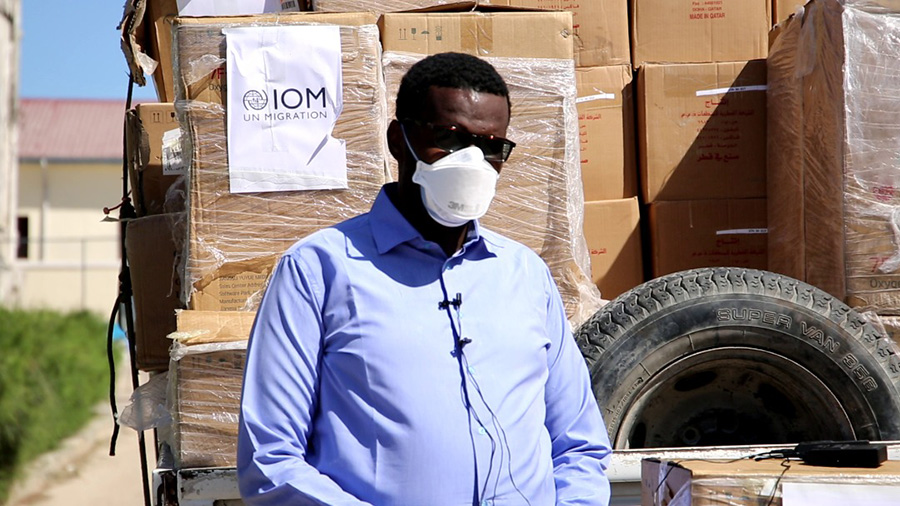DEVELOPMENTS
In Somalia, Ensuring Social Protection During the COVID-19 Pandemic and Food Security Crisis
Apr 28, 2020
After many years of conflict, recurrent natural disasters, and humanitarian crisis, Somalia is highly susceptible to poverty and food insecurity, and its health indicators are among the worst in the world. Against this backdrop, the COVID-19 pandemic is a palpable threat to the country’s healthcare system, food security, and already fragile economy.
The European Union-funded Technical Assistance Facility is working with key government departments—led by the Ministry of Labour and Social Affairs (MoLSA)—to mobilise implementing agencies, engage donors, and coordinate social protection activities in the country. It is particularly focused on ensuring that public health measures are complemented by attention to social and economic factors, especially because Somalia is simultaneously in the throes of a historic desert locust infestation.
A Plague of Locusts
When the first case of COVID-19 was reported on March 16, Somalia was already struggling with one of the largest desert locust swarms ever recorded. A month later, the coronavirus is now established—237 confirmed cases, and eight deaths attributed to COVID-19 as of April 21—and the government has activated various response measures, including closing schools, restricting mass gatherings, and communicating on infection prevention and control measures.
The confluence of COVID-19 and massive locust infestation is likely to be devastating. Desert locusts are reported to be consuming 1.8 million tonnes of vegetation a day across 350 square kilometres and have already destroyed more than 175,000 acres of farmland in Somalia and Ethiopia alone. According to the Ministry of Agriculture and FAO, this could lead to an additional 600,000 people faced with increased food insecurity between April and June. The Facility has prepared two position papers recommending actions to address the infestation and is now serving as the secretariat to ensure that Somalia’s ministerial response encompasses both COVID-19 and the locust impact.
Central to this work is coordinating with international donors and nongovernmental groups. For example, the World Bank has allocated $20 million to mitigate the locust infestation’s effects on the most vulnerable members of society, and it may be possible to extend these emergency cash payments to include COVID-19 responses.

Photo courtesy: Somali Ministry of Health.
Advocating a Holistic Approach
Understandably, donors’ immediate response to COVID-19 focuses mostly on public health, but the risk here is that livelihood, security, and social protection initiatives may be eroded as a result of the shocks caused by the pandemic. Seeking to strengthen existing social protection investments made by a variety of donors, the Facility is approaching the crisis with a social protection lens, which takes into account health, economic, and social challenges.
For example, the Facility is working with the Somali government on engaging donors and other implementing agencies to ensure social protection programmes protect children as well as elderly households, and urging donors to expand their programmes to ensure emergency cash support is made available to these groups.
Thinking Ahead
The Facility is advocating for the production and communication of key messages to promote practices such as handwashing, good hygiene, and social distancing, which are key to slowing the spread of the virus and protecting those most at risk. Certain social distancing measures, however, represent a major challenge for those who depend on cash entitlements, especially the elderly. Our team is advocating for contactless cash transfers and offering to assist donors in:
- Developing new electronic enrolment systems to facilitate and fast-track client uptake.
- Expanding and scaling government-wide customer relationship management systems to track constituents across agencies.
- Promoting a country-wide monitoring, evaluation, and learning platform—using agreed indicators—across Somalia’s social protection initiatives, and developing a dashboard that all implementing agencies and donors can use.
Such initiatives are in their early stages, but we expect they will soon have the financial and technical commitments to ensure their delivery in vulnerable communities throughout Somalia.
Azim Manji leads the Technical Assistance Facility in Somalia.